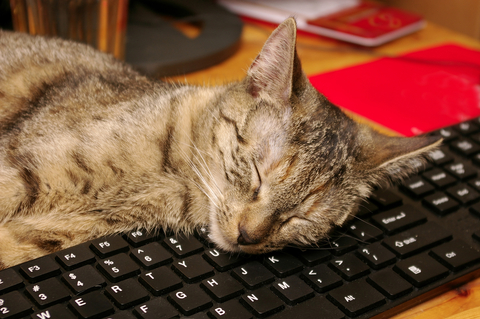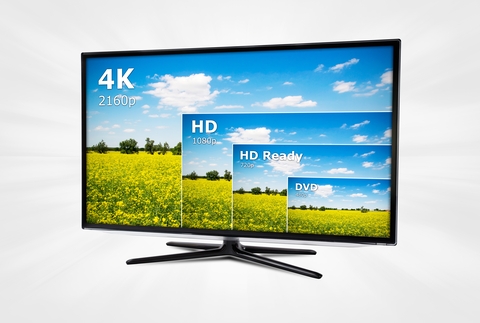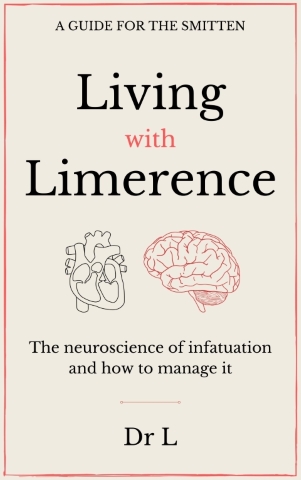Happy 2022 everyone!
Every year, at this time of year, millions of people make resolutions about what they want to achieve in the year to come. I’m one of them.
I enjoy the process of reviewing the last year, settling on some goals for the new year, and planning how I might meet them. This year, though, I’m going to try a new approach.
My usual routine is to set some specific goals, on the principle that if you don’t have a target how are you going to know if you’ve hit it, eh? So, a typical year might see me setting resolutions like:
- Complete Project X at work
- Write and publish a book on how to fight limerence
- Lose belly fat and get a six pack
- Learn video editing
These are fairly broad aims (so some wriggle room for how to achieve them), but they are also focused on specific objectives that can definitely be measured: was the book published, yes or no?
It’s also important to set goals that are within my control, so I don’t fail due to random factors of fate. If I had set the goal “I will write and publish a New York Times bestseller”, it would have been ambitious for sure, but also setting myself up for failure. I could do everything within my power to achieve that goal but still not succeed. So, there are some strengths to this approach, but there are also a couple of obvious downsides.
The downsides of goals
First, goals are typically about things rather than personal values. It’s more a list of stuff I want to get done, than a list of ways that I resolve to improve. Too many goals can lead to frenetic periods of activity in which I try to tick off lots in a short space of time, and end up doing a bad job and/or burning out.
Second, goals are constrained. While it’s good to have specific goals that you know you’ve achieved and can tick off with a satisfying dopamine-hit of mental reward for a job well done, that is also the end of the goal. You’re done. You can set a new goal and start over, but the temptation would be to just relax and enjoy your constrained success.

Goals can also lead to blinkered thinking. If you get hung up on the immediate goal, you can lose sight of the larger ambition. Say you set the goal “I will lose 10 pounds this year,” you can miss the point that the actual goal is to improve your levels of health and fitness. You could eat healthily and exercise more, and lose 8 pounds. Is that a failure? Or you could crash diet and lose 12 pounds. Is that a success?
So, this year I came to the realisation that I would do better to set resolutions that are focused on behaviours rather than endpoints.
Success as an emergent property
What I’m driving at here is that any achievement, any successful execution of a goal, actually depends more on the willingness to do the labour rather than on identifying the correct goal. Success emerges from the behaviour that leads to purposeful activity, and so focusing on the behaviour is the most powerful way to effect change.
This reframing also has the benefit of making the resolution unconstrained. To stick with the book writing theme, a resolution like: “I will write every day” is a behavioural objective, not a goal-based objective. Meeting the resolution is likely to result in the successful production of a book, but it can continue after that milestone has been met. You might end the year with two books.

To get more sophisticated still, you can incorporate the desired outcome into the behavioural objective. “I will write every day, to improve the quality of my writing.”
I don’t just want to write anything (such as a shopping list) – I want to write well. Deliberate practice of the craft is necessary for real success.
Better resolutions
With this change of perspective, it becomes easier to identify the personal changes needed to live a more purposeful life. Not only can you figure out what needs to be done, but you can also figure out what habits are holding you back.
With that in mind, this year I am resolving to work on the keystone habits that have the biggest impact on productivity. The thinking is that if I succeed in these resolutions, I should have the energy, motivation and time to meet all my goals. These are the habits that I’ve neglected in the last year and have held me back. So, for a dash of social accountability, I’m going to share them with the LwL community to help keep me honest and prevent any lapses into “well, that one was more of an aspiration than a resolution”.
Dr L’s 2022 resolutions:
- I will go to bed at a consistent time and get up at a consistent time, to improve my sleep patterns
- I will exercise every day
- I will write every day, to improve the quality of my writing
- When I feel stressed, I will do something healthy or constructive
- I will rest at the weekends and focus on family life
Those are my priorities. Let’s see if I can keep them up all year.
Good luck to everyone else who is embarking on 2022 with a plan for self-improvement. Feel free to share your own resolutions in the comments.


I love this approach to change and to purposeful living. I’ve also found that in my life my greatest satisfaction has come from disciplined effort, effort towards long term goals that don’t just end by ticking a box.
My main objectives for 2022 are
1. to do the hardest part of my job first thing in the morning everyday – the “eat the frog mentality”. Larger goal: keep moving up in my career.
2 to read one book a month. Larger goal: reading helps me to enjoy life
3 to remain in NC with my LO. Larger goal: recover and continue to respect myself enough to stay away from the bad situation and avoid others like it in the future.
Would like to set other behavioral resolutions but know I won’t have the energy to do them, so they’ll be on the back burner for now.
Ehhh…
I somewhat disagree with your take on goals. Vague goals often lead to vague results. The wrong goals can make things worse.
– “Begin with the end in mind.” – Stephen Covey “The 7 Habits of Highly Effective People”
– Companies introduce these programs under the false assumption that if they carry out enough of the “right” improvement activities, actual performance improvements will inevitably materialize. At the heart of these programs, which we call “activity centered,” is a fundamentally flawed logic that confuses ends with means, processes with outcomes.” – https://hbr.org/1992/01/successful-change-programs-begin-with-results
– “You shouldn’t be doing well what you shouldn’t be doing at all.” – From an article our upper echelon HQ passed out to subordinate commands
– “…productivity is the act of bringing a company closer to its goal. Every action that brings a company closer to its goal is productive. Every action that does not bring a company closer to its goal is not productive.” – Elihu Goldratt, “The Goal”
– “Practice doesn’t make perfect. Practice makes permanent.” Dave Pelz, “Dave Pelz’s Putting Bible, p 377
How do you evaluate things? Compliance doesn’t equal effectiveness.
Example #1:
In July 1976, I was in Corpus Christi, TX, for training. We were running the obstacle course in Texas heat and humidity. We had to run it a few times. By the second time, I was really dragging.
One of the obstacles was a wall that slanted toward you. You had to go over the wall. The wall had supports on each side. The officer-in-charge was from my NROTC unit which added a lot of pressure. There was a Marine Gunnery Sergeant taking notes on who made it over and who didn’t.
When I got to the wall, I didn’t have the strength to pull myself up over it. I asked if I had to go over the wall (Yes). I asked if it mattered how I got over the wall (No). So, I walked up the support beam, stepped over the wall and slid down. I looked at the Gunny and he gave me a Thumbs Up. People behind me who saw me started doing it.
As I jogged off, I heard him say to the Lieutenant, “I must have seen 5000 people go over that wall in my time and he’s the first person who ever did that.” They noted it in my performance appraisal.
The goal was to get over the wall. The assumption was you had to pull yourself over.
Example #2:
In 1980, I was in New London, CT for submarine office training. One of the classes was leadership and management. It included understanding and setting goals.
One exercise was a ring-toss game. Points were in “ring feet,” which was the number of rings X the distance in feet the ring was tossed from. For example, 1 ring on target tossed from 2 ft was 2 ring feet.
Most of us went for the big score, standing pretty far away. The best guy had 8 ring-feet. The instructor repeated how points were awarded. He went to the 3 ft line, stacked all three rings together, leaned over and dropped them on the post for 9 ring-feet. He said, “I win.”
The point of the exercise was to understand the goal and how best to achieve it. I never forgot that lesson.
Example #3:
Years ago, they introduced a new work management system. It had a lot of bugs that caused work stoppages. A work around was developed to allow work to continue while the permanent fix was implemented.
A guy that formerly worked for me was put in charge of training everyone on the work-around. I asked him how we were going to define success and evaluate the effectiveness of the proposed short-term fix. He said success was when everyone was trained on the new system.
I told him he was wrong. The goal wasn’t to train people, it was to eliminate the work-stoppages. By his definition, what he trained could make the problem worse but if he trained everybody, he was successful. He told me to get out of his office.
The points:
– Resolutions are more than goals but goals often are part of resolutions.
– Goals are good, if they’re good goals. If you can’t evaluate a goal, you should re-define the goal until you can.
– Bad goals or no goals can give you bad results.
Is it reasonable to say that people who experience limerence either have underlying mental issues and/or social issues? And if that’s the case, would working on said issues alleviate their encounters with limerence?